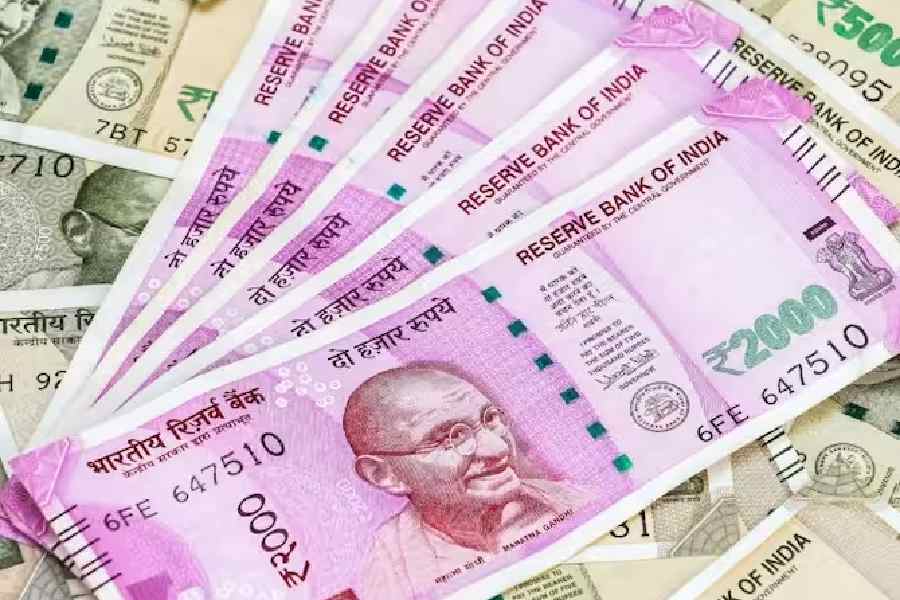Fuel pumps, in and around Kolkata, continue to see a surge in the collection of Rs 2,000 notes, said owners and employees.
Several pumps have been struggling to arrange for change for customers who are buying a small volume of fuel but giving the high-value notes.
A pump in Chetla, before Kalighat crematorium if one comes from New Alipore, got 15 to 20 notes of Rs 2,000 daily before the Reserve Bank of India’s announcement to withdraw the high-value notes.
Since May 20, the number has shot up to over 120 every day. Along with the surge, came a challenge.
“Two-wheeler-riders buying petrol worth Rs 100 or Rs 150 are giving a Rs 2,000 note. We can give change only till a certain point,” said Anirban Saha, the owner of the pump.
Post-demonetisation, around 60 per cent of the customers at the pump in Chetla paid in cashless mode, said Saha.
Since it is a residential area, the majority of the customers buy petrol for private cars. They prefer cards and other modes of digital payment. But for the past five-six days, there has been a dip in the number of cashless payments. “At least some of the customers who used cards or e-wallets are now paying in Rs 2,000 notes,” said Saha.
A pump he co-owns at Babughat thrives on diesel customers, mostly buses, including inter-state ones.
The buses usually pay in smaller-denomination notes collected from passengers. The employees at the pump bank on such notes to give change to two-wheeler-riders giving Rs 2,000 notes.
“But many two-wheeler-riders are refusing to take small change even after giving a Rs 2,000 note. They want notes of Rs 500. How can we arrange for so many Rs 500 notes?” said Saha.
Prasenjit Sen, the owner of a pump in Golabari, near Howrah station, said his daily collection of Rs 2,000 notes has jumped from “around 20 to around 200”.
“Arranging for change has become a headache. I am somehow managing by sending an employee to the bank every day for withdrawals in Rs 100 and Rs 500 notes. But this cannot go on for a long time,” said Sen, who is also working president of the West Bengal Petroleum Dealers’ Association.
The association has convened a meeting on June 5 to discuss the ways to mitigate the challenge of dealing with Rs 2,000 notes, said Sen.
A section of pump owners is also worried because of the experience they had in the wake of demonetisation.
The pumps had accepted Rs 500 and Rs 1,000 notes but were allegedly harassed by government agencies that wanted several details on the high-value notes.
“We did not keep any documents from the people who gave the notes. It was impossible for us to trace them back. We do not want a repeat of the harrowing experience,” said a member of the association.
A fuel pump near the Mullickbazar intersection, one of the busiest in the city, usually gets between 50 and 60 notes of Rs 2,000 in 24 hours.
Since May 20, when the clock started ticking on the Rs 2,000 note, the pump has been receiving “close to 250” such notes every day, said an employee at the office of the pump.
“We are giving change till stocks last. After that, we are telling customers before loading their tanks that we cannot give small change for Rs 2,000,” he said.
